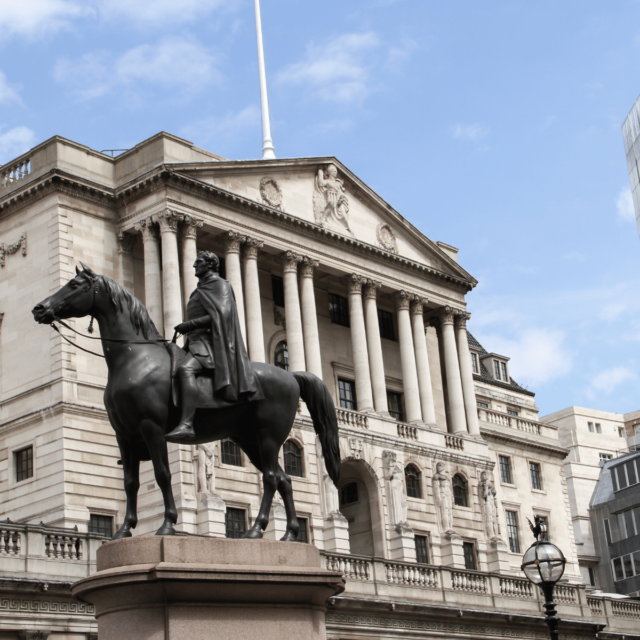Why Parties Should Not Rule Out Raising Income Taxes

The election campaign has kicked off and, so far, the economy has taken center stage in the debate. There are indeed some big questions to answer for political parties on the main economic issues currently facing the United Kingdom.
Given current deficit projections, if a party wants to meet the fiscal target of a deficit-to-GDP ratio of 3 per cent, it will need to find an extra £61 billion revenue per year over the next few years. It can do this by raising taxes or cutting expenditure. We at NIESR recommend raising income taxes. Why do we think this?
Well, raising income taxes rather than cutting expenditure has less of a lasting long-run impact. Investment in the economy, and expenditure on vital services and infrastructure, can help grow the economy. Without investment, productivity and growth falter and decline. Furthermore, there are several unique challenges facing the UK economy currently that require expenditure – risks around geopolitical conflicts, climate change, and the state of public services all require the government to step up and invest or face serious consequences. We have analysed what the impact would be if the government wanted to improve its deficit-to-GDP ratio by 1 per cent either through an income tax rise or by cutting its expenditure: both policies reduce GDP by about 0.2% in the short run; this negative affect persists when expenditure is cut but proves temporary when income tax is raised.
The next question to ask is why do we recommend using income taxes instead of other forms of taxation? Indirect taxes, such as VAT, have been ruled out by both major parties – and rightly so. Indirect taxes tend to be regressive and burden those on the lowest incomes more than those on higher incomes. Furthermore, and perhaps more importantly, in the midst of the cost-of-living crisis indirect taxes will put further pressure on prices. If these inflationary pressures remain elevated, the Bank of England would need to hold interest rates higher for longer. It is not the right time to be doing this.
Corporation taxes also have a negative impact on the economy in the long run, discouraging investment. Productivity falters, wages drop, GDP growth slows – so these are not the right taxes to be raising now either.
A final consideration is that income taxes have a much larger tax base – that is, the total amount available to be taxed- than the other two options. This means that the actual rate would not need to increase as much. Again, when modelling the effects of using different taxes to raise an extra £3 billion revenue a quarter, we find that both corporation tax and indirect tax rises reduce real GDP by about 0.2 per cent in the short run. In the long run, raising indirect taxes leads the economy to only shrink by about 0.07 per cent. Corporation taxes are even worse for the economy in the long run, shrinking real GDP by 0.25 per cent. In complete contrast, income taxes only have a very shallow impact on GDP and are essentially neutral in the long run.
However, perhaps the most important question parties need to be asking themselves is why it is so important to meet these fiscal targets in the first place? The short version of a (very) long story is that if governments spend too much for too long without any credible plan to get spending back in line with revenue, lenders may get nervous about investing in government debt: they will start charging higher interest rates. There is a good reason for governments to get their finances in check, but parties need to be aware of what this reason is so they know the trade-offs and respond to the real needs of the economy.
A party that follows the fiscal rules in an absolutist manner will underinvest in the economy and lead to the very stagnation that they hoped to avoid. For example, the government clearly violated fiscal discipline during the Covid-19 pandemic, but you would be hard-pressed to find someone who argues that this wasn’t necessary. Simply put, the economy would have collapsed without the government’s support, and maintaining fiscal discipline in light of this would have been foolish.
But it is a fine line between responding to the real needs of the economy and providing a credible and clear fiscal strategy to buffer business confidence. For this reason, at NIESR we have argued for some time that the current fiscal rules are not fit for purpose and need to be changed to allow the government to invest in the economy when this is needed. Above all, parties need to provide a clear and holistic strategy for the economy. Follow the rules but ensure that the cure is not worse than the disease.







